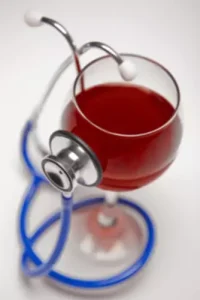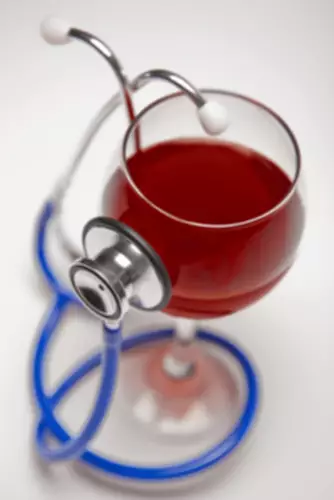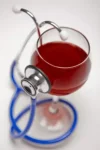The Stages of Alcoholism Explained Early, Middle and End-Stage

A heavy drinking binge may even cause a life-threatening coma or death. This is of particular concern when you’re taking certain medications that also depress the do alcoholics drink every day brain’s function. While end-stage alcoholism is a dire situation, it’s not a hopeless one.
Are you questioning your drinking?

As such, they may justify their drinking as a normal part of life—even though it isn’t. If you are concerned about your drinking or that of a loved one, don’t wait to seek help. Contact Boardwalk Recovery Center today to learn more about our programs and how we can help you achieve lasting recovery. Whether you need intensive outpatient treatment or ongoing support, we are here to guide you every step of the way. Don’t let myths and stereotypes about alcoholism prevent you from getting the help you need.
Alcohol and Cialis: Risks, Side Effects & Treatment
In this situation, you might not drink every day, but instead, you tend to binge drink. You’re not a severe alcoholic in this case, and you probably don’t have a physical dependence, but you might be on the road to developing a more significant problem. You might be struggling with alcohol use disorder (what we typically call alcoholism) if your alcohol consumption has negatively impacted your professional and personal life, but you continue to drink.
Myth: Drinking one glass of alcohol a night has no impact on your health.
Late-stage alcoholics can get better if they seek treatment, and some of their health problems can even be reversed if caught early enough. Despite efforts to hide their addiction, their drinking problem is quite obvious to others. Work performance usually suffers at this stage, and impairment in the workplace is common. Middle-stage alcoholics may become irritable or angry if confronted about their drinking. Mood swings, depression and feelings of guilt and shame are common.

Someone with alcohol use disorder may struggle to cut back on drinking or quit, either when trying to do so themselves or when asked by others to try. If you find that the above descriptions resemble you or a loved one, you’re not alone. At The Recovery Village, we offer evidence-based treatment methods that can address every aspect of each client’s treatment needs. We want to guide you down the path to recovery –call today to learn more.
What Is Alcohol Use Disorder?

A person with a dependence may go throughwithdrawal symptomswithout a certain level of alcohol in their body. When the normally high level of alcohol in a person’s body begins to drop, they may feel physically ill. They may only feel well when they maintain a consistent level of alcohol in their bloodstream. The main problem with heavy drinking is binge drinking since 90% of heavy drinkers binge drink.
Alcohol Addiction Gets Worse Over Time
With a compassionate approach, our Outpatient Program fosters healing, resilience, and personal growth, empowering women to achieve and maintain long-term wellness in a nurturing and understanding environment. Heavy drinking is considered 5 or more episodes of binge drinking in a given month. Once you engage in moderate to heavy drinking regularly, you’re at risk for alcohol dependence.
Early Signs of Alcoholism and Alcohol Abuse
The impact alcohol has on the reproductive system extends beyond these temporary effects. Chronic alcohol use causes hormone imbalances in both men and women and leads to problems with fertility. Tolerance develops when the same amount of alcohol no longer produces the same effects. In some people, the initial reaction may feel like an increase in energy. But as you continue to drink, you become drowsy and have less control over your actions. Other than the fact that someone is drinking more than usual, it might be hard to detect that there’s even a problem because outwardly the alcoholic appears normal.
- These symptoms can occur six to 24 hours after their last drink.
- Intermediate familial alcoholicsdrink on an average of 172 days a year, consumingfive or more drinks on 54% of those dayswith a maximum of 10 drinks.
- Early-stage alcoholism is the beginning of the person’s chronic use and pathway to abusing alcohol.
- However, only a medical professional can diagnose someone with an AUD and determine the severity of their AUD.
- My name is Andy Mouck, and I am a dedicated group facilitator at Anchored Tides Recovery.
- Our dedicated team, many of whom have personal experience with addiction, is committed to walking alongside you on your journey to sobriety.
The alcohol is still affecting their bodies, even if they do not immediately feel it, and they are still at higher risk of falls, cognitive impairment and other negative effects because they are drinking more. These therapies are available one-on-one or in small groups in an inpatient or outpatient setting. Some people with AUD may attend an inpatient recovery program, in which they stay at a facility for at least 28 days to receive concentrated treatment in a controlled environment. If someone you are close to is living with alcohol use disorder, you may be looking for ways to help them cope with the impacts of their disease on your own life.

How Alcohol Use Disorder Is Treated
- And it’s all still problem drinking, even if you think it’s “mild.” If AUD goes unrecognized and untreated, it’s linked to risks in many aspects of your health and life.
- “So the actual cause (of any health benefit) probably wasn’t the alcohol at all,” Dr. Oesterle says.
- Whether you need intensive outpatient treatment or ongoing support, we are here to guide you every step of the way.
- Approximately47% are employed full time.Family incomes average around $32,000, the lowest among the subtypes alongside the chronic severe subtype.
- While every person’s alcohol addiction is unique, alcohol affects people in similar ways.
They may not appear like they have a problem despite having a higher tolerance. You could look at drinking alcohol like skydiving, Dr. Oesterle says. There is no recommended number of times that someone should jump out of a plane. It’s fun for some people, but there is no medical reason to do it or health benefit from it. By Sarah Bence, OTR/LBence is an occupational therapist with a range of work experience in mental healthcare settings.